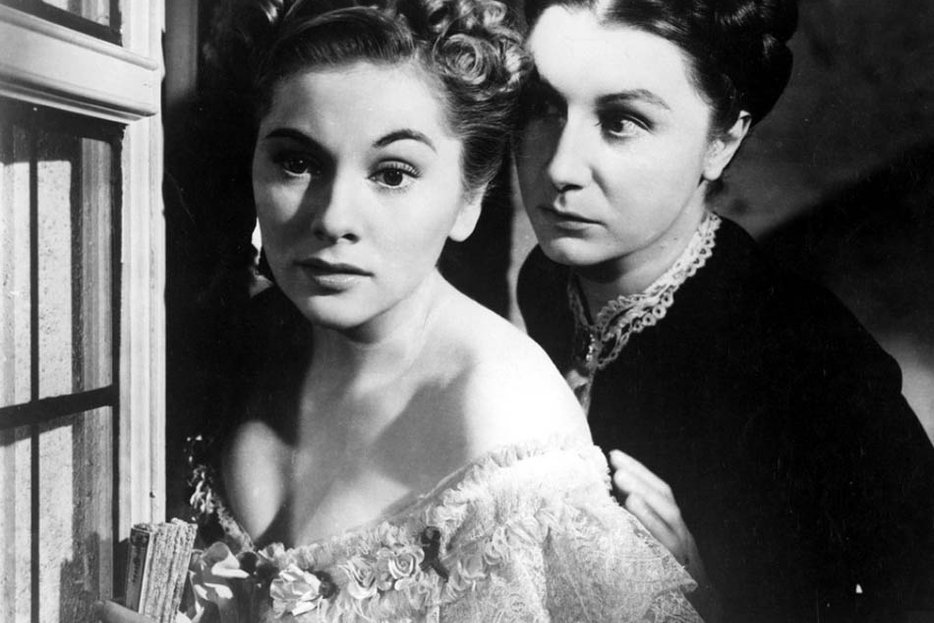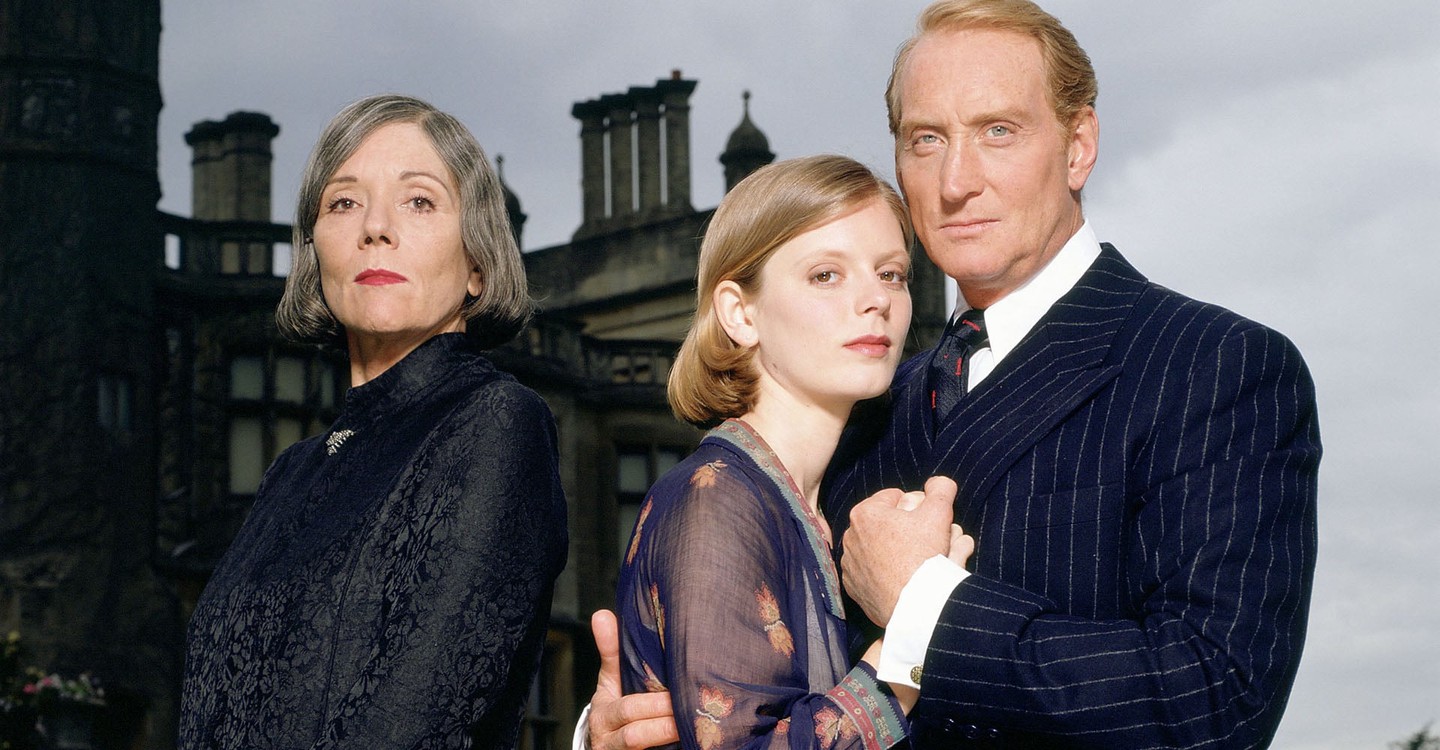It cannot be iterated enough how truly excellent Daphne Du Maurier’s dark and twisting tale of love and haunting obsession,
Rebecca truly is. If you've never read the novel, I would highly recommend you take the memory trip to Manderlay that has greeted so many readers over the years with boundless suspense, horror and chills. I thought today would be an opportune time to discuss the multiple adaptations of the work, across many mediums, in preparation for the release of Ben Wheatley’s new Netflix film starring Armie Hammer, Kristin Scott Thomas and Lily James. I have chosen four of the best adaptations of the work, across multiple mediums including radio, film and television mini-series.
The novel follows the second Mrs de Winter after she arrives at Manderlay, the estate of her new husband, Maxim De Winter, whom she married after a whirlwind week in Monte Carlo. She swiftly comes to learn, however, that the recently deceased first Mrs De Winter, Rebecca, still haunts the place and has an ally on her side, even beyond the grave, in the cunning and brilliant Mrs Danvers.
And for those who have never read the novel, I would highly recommend it as the true starting place here, after all, it may well be one of the finest novels ever written. Especially in the suspense and mystery genre.
Let’s start in 1938,
shall we? With a journey to meet Orson Welles and the Mercury theatre company...
1938 for radio (Orson Welles, Margaret
Sullivan, Mildred Natwick)
Adapted for the radio by Howard E. Koch, this production
from ‘The Mercury Theatre on the Air’ (Orson Welles' very much deservedly celebrated
theatrical company) is moreso a morsel of the novel and is simply a time
capsule to allow us to hear Welles deliver some of the classic lines of Maxim
De Winter. The cast is hence filled with many alumni of Welles troupe: Agnes
Moorhead, Frank Readick, George Coulorius and Ray Collins, to name but a few, all of whom do sterling jobs, with Margaret Sullivan adding trepidation and a
powerful vulnerability to our unnamed protagonist. The “morsel” attribution
comes from the fact that the show only really runs for forty minutes (with
advertisements and its intro and outro removed). Both the intro and outro are very
intriguing in their own regard, with Welles introduction perfectly
encapsulating the appeal of the novel and his outro consisting of an interview
with Du Maurier herself. The radio production also benefits from a beautiful
score from Bernard Hermann, filled with dread and much delicate worry. Hermann’s score was in fact later used to form his score for the 1943 adaptation of Jane Eyre, also starring Welles. All in
all, the production is a very interesting introduction to our article here and
definitely worth a listen to. After all, who would deny themselves an hour with
Welles in their ears?
1940 for film (Laurence Olivier, Joan
Fontaine, Judith Anderson)
The only Hitchcock film to win
best picture is often looked upon as an oversight and although the oversight is
more than warranted when commenting on the other fare that more than deserved
Oscar recognition, one mustn’t sleep on the brilliance of this 1940 adaptation
of Daphne Du Maurier’s classic novel. Laurence Olivier and Joan Fontaine are
both excellent, but Judith Anderson steals the show as the terrifying and
unsettling Mrs Danvers. Is there a more daunting character than Mrs Danvers in
Hitchcock’s suitably unwavering adaptation of Du Maurier’s
Rebecca?
What makes this performance so marvellous is the double meaning of "daunting"
here. Not only is the role itself daunting to any actress, but the way Anderson
takes the challenge gleefully and makes the character her own, more daunting
and frightening than anybody could have imagined in the book. Hitchcock’s
camera work is sturdy and super as always and the beautiful black and white
cinematography brings home the dark nature of the novel, fulfilling Hitchcock’s
stated intention with the choice. A more than worthy adaptation to a stellar
novel that has never aged, nor has the film. The Hollywood production code
altered the integral plot point of Max murdering Rebecca, altering it so the
deal was accidental and then Max covered it up. The change does change the
character of Maxim into a wholly more moral character, but does keep the
darkness and guilt for to our character here. Rebecca’s death was as good as
murdering her. There was a lot of tension on set between Olivier and Fontaine, due to
her casting over Olivier’s then bride Vivien Leigh, who was just a touch too
Scarlett O’Hara in her screen test for everybody’s liking. Hitchcock famously
enjoyed this tension and encouraged others to dismiss Fontaine on the set, as
to build the characters uneasiness and woe. Fontaine’s performance is truly
sublime and I would hate to say that it was chiefly down to bullying, for her
nuances are clear and are not the sort that could come about from cheap tactics
such as those described.
Much has to be said for Olivier as well, who is of course splendid in the role of Maxim. As the actor was known to
be pretty good, this comes as no surprise, but the delicate darkness that he
imbues into the role is his greatest addition to the film here, ultimately
setting the tone for the rest of the performances and the film entire. It is
Olivier’s charm in the opening stretch of the film that
makes the whirlwind romance believable - a very internal part in making the rest
of the film work. Hitchcock’s work in the film underpins the horror and does
what every good adaptation of the work should do, making it a ghost story. Sure
there are no ghouls or great scares in the film/novel, but the piece should
always be tainted by the haunt of Rebecca, or at least her still dominating and
looming prescience. As aforementioned, the film was the only Best Picture winner directed by Hitchcock, and although we can dismiss the film in some respects
when comparing it to other fare and declare that it perhaps isn’t the best in
Hitchcock’s cannon, when one returns to the film, one simply cannot deny the
power of it, nor the romance, nor the horror, nor the sheer
mystery and thrills that it still gives its viewers to this day.
1997 for television (Charles Dance, Emelia
Fox, Dame Diana Rigg)
This 1997 television adaptation of the novel is far more
thorough and is certainly a more truthful representation of Du Maurier’s
original novel. Directed by Jim O’Brein, the TV programme was released over two hour-and-a-half episodes and is, all in all, another wonderful adaptation of the work.
Whilst the film played loosely with certain elements of the plot, due to the production
code at the time, this production could revel in the darkness and sexuality
of the novel - something that the film simply wasn’t allowed to. The casting for the show
could be seen as more accurate to the novel also, with Charles Dance emulating (perhaps better than Olivier) the age difference between Maxim and his second
wife, leading to all of the reference to youth and innocence bearing more weight
here. Dance is also splendid in it, offering us some of the harsher elements of the
character whilst still offering us the abundant charm of the man. There is
a lovely element of heritage to the piece, with Emelia Fox portraying the same
role that her mother Joanna David did in 1979. Fox here is just subtle enough
and just powerful enough in the first half to make her transformation over the
production a little clearer in its through line than Fontaine perhaps. However, if one was to compare the two, I feel that Fontaine is slightly stronger in the
role. The standout here, though, is unfortunately late but forever with us,
Dame Diana Rigg, portraying Mrs Danvers with supreme excellence. What puts Rigg’s
Danvers over Andersons is the ability she has to maintain the coldness of the
character, whilst also letting us in multiple times for scenes of great
vulnerability and levels of almost being distraught. Rigg won the Emmy award
for Outstanding Supporting Actress in a Mini-Series, and was more than the
worthy choice to do so. The adaptation is noteworthy for featuring an actual
appearance from Rebecca, played here by Lucy Cohu, but these appearances are
shot with a mosaic-like montage of extreme close ups on her features, never
letting us get a complete look at her, hence maintaining all the mystery of the
novel with a certain visual flare. Although the length of the piece does allow
for the novel to be brought to life more accurately, I do feel that the
truncation of
the novel’s plot points in
the film does ultimately lead to a better pace. This is most prevalent in the
fancy dress ball scene which, in the film, builds and builds and builds until
the climax of the finding of Rebecca’s body, whereas, as is the case with
novel, this adaptation stretches the events over multiple days, taking nothing
away from the power of each moment, but removing a certain element of
pace indeed. Although I may return to the film more often than this piece, I do
still find myself drawn to its many wonderful parts and its dissections of the
darker parts of the novel. Another worthy adaptation of the work and another
watch for anybody who hasn’t seen it.
And so we will see how
this new adaptation fairs against these adaptations. You will know my opinion
as soon as it has been put to paper. I have great faith in Ben Wheatley - one of
our great directors of the decades - and the casting is mostly sublime (bar Lily
James, but hopefully she proves me wrong). Hopefully the film is a worthy adaptation of
De Maurier’s work, but most importantly, an entertaining film. I hope, I do hope.-Thomas Carruthers





0 Comments